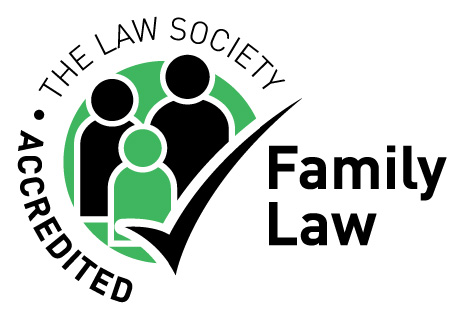Contested Probate Solicitors Enfield, Finchley, North London and Hertfordshire
Someone really close to you has passed away – but you are devastated by the contents of the Will – what are your options?
These claims are distressing and challenging at the worst possible time, when the family is grieving the loss of a loved one. This is made even worse when you feel the deceased has failed to make adequate financial provision for those left behind.
Our Probate Solicitors offer you a professional and highly sympathetic approach to help you achieve the best possible outcome to a dispute about a Will. We do not want to make matters worse by encouraging you to make unfounded claims and any course of action we suggest will be spelled out in advance and highly cost-effective.

Contact our Contentious Probate Claim Solicitors in North London today
Call us today or complete our online contact form and one of our probate specialists will be in touch to discuss your matter further.
Contentious Probate Disputes Lawyers
There are many different types of claim which may come about as a result of a Will, Inheritance or lack of provision. The Probate dispute solicitors at Curwens can help you with claims such as:
- Making a claim against the estate of the deceased under The Inheritance (Provision for family and Dependants) Act 1975.
- Assessing any alleged unfair financial loss you are suffering
- Negotiating an acceptable settlement with the beneficiaries/executors
- Contesting illegally executed wills or those made under duress or undue influence
- Claims by unmarried cohabitees where there is no Will
- Claims for reasonable financial provision by family or dependants
- Rectification of errors in Wills
- Resolving disputes with, or between, Beneficiaries
- Interpretation of ambiguous terms in a Will
- Resolving disputes with, or between, Executors
- Application for removal of Executors
- Disputes relating to the Grant of Probate
- Claims for promises which have been relied on to be met
How our Contentious Probate Solicitors can help you
Contesting a Will is never easy but if the Will has been badly drawn up, or made under duress or the undue influence of someone else, this can be challenged. If you are to act, timely intervention is essential.
Investigating claims like these is often both stressful and expensive in legal costs. We will give you an assessment about whether the claim is cost effective to pursue bearing in mind the size of the estate and your potential interest in it, as well as the investigations which have to be made. These need to be made quickly as there are strict time limits for some claims, within 6 months of the Grant of Probate for claims under the Inheritance Act.
On what grounds can I contest a Will?
In England and Wales, you can contest a Will on various grounds, including:
1. Lack of testamentary capacity: If the testator (the person who made the Will) was not of sound mind or didn't understand the implications of their actions at the time of making the Will.
2. Undue influence: If it can be proven that the testator was coerced or manipulated into making or changing the contents of the Will.
3. Lack of valid execution: If the Will was not properly signed, witnessed, or executed according to the legal requirements.
4. Fraud or forgery: If there is evidence to suggest that the Will was tampered with, falsified, or forged.
5. Lack of knowledge and approval: If the testator did not have a clear understanding of the contents of the Will, perhaps due to misrepresentation or misinformation.
What can I do if I receive nothing or inadequate financial provision under a Will?
If you receive nothing or believe you have been inadequately provided for in a Will, you may be able to make a claim under the Inheritance (Provision for Family and Dependants) Act 1975. This Act allows certain individuals, such as spouses, children, or dependents, to seek reasonable financial provision from the deceased's estate. The court will consider various factors, including your relationship with the deceased and your financial needs, in determining whether you should receive additional provision.
What if there is no Will?
When someone dies without leaving a valid Will, they are said to have died intestate. In such cases, the distribution of the estate will follow the rules of intestacy set out in the law of England and Wales. The rules determine who inherits and in what proportions based on the familial relationship to the deceased. It is recommended to seek legal advice to understand how the rules of intestacy apply in your specific circumstances.
What is the time limit for contesting a Will?
The time limit for contesting a Will is generally within six months from the date of the grant of probate. However, in some cases, the court may allow extensions of this time limit if there are valid reasons for the delay. It is advisable to seek legal advice promptly if you intend to contest a Will to ensure compliance with the applicable time limits.
Can you contest a Will if Probate has been granted?
Yes, you can contest a Will even if probate has been granted. The grant of probate signifies the legal recognition of the Will, but it does not prevent you from challenging its validity or making a claim against the estate. It is important to seek advice promptly if you wish to contest a Will, regardless of whether probate has been granted or not.
How much does it cost to contest a Will?
The cost of contesting a Will can vary depending on the complexity of the case, the time involved, and the legal fees of the solicitors involved. Contact us to find out more.
What is a 'no contest' clause in a Will?
A 'no contest' clause, also known as an 'in terrorem' clause, is a provision included in a Will that threatens to disinherit a beneficiary if they challenge the validity of the Will or engage in legal proceedings. While these clauses are enforceable in some jurisdictions, the courts in England and Wales have discretion to disregard or modify such clauses if there are valid grounds for contesting the Will.
How do I defend a Will against a challenge?
If a Will you are involved with is being challenged, it is crucial to seek advice from an experienced contentious probate solicitor who specialises in contentious probate matters. Contact us today.
What are Inheritance Act claims/ Inheritance Disputes?
Inheritance Act claims refer to legal actions brought under the Inheritance (Provision for Family and Dependants) Act 1975 in England and Wales. These claims allow certain individuals, such as spouses, children, or dependents, to seek reasonable financial provision from a deceased person's estate if they believe they have not been adequately provided for in the deceased's Will or under the rules of intestacy. The purpose of Inheritance Act claims is to ensure that dependents and close family members are provided with fair and reasonable financial support, taking into account their relationship with the deceased and their financial needs. These claims require a thorough understanding of the Act and the legal procedures involved. Inheritance Act Disputes arise when there are disagreements regarding the distribution of a deceased person's estate. Under the Inheritance Act 1975 in the UK, certain individuals can make a claim if they feel they haven't been adequately provided for in the will or under intestacy rules.

FAQs
If you suspect the deceased lacked mental capacity to make a Will, you should consult a solicitor to make enquiries because there is a protocol which should be followed – it is called the “ACTAPS Protocol” on the website of the Association of Contentious Trust and Probate Solicitors – see www.actaps.com This sets out steps which must be taken to investigate the position, including making enquiries with the deceased’s GP to check capacity.
There are various ways to challenge the validity of a Will. It may not have been properly executed (there are strict rules about that) or the deceased may have suffered undue influence, duress or lack of mental capacity prior to making a Will. You can also challenge the Will if you were financially dependent upon the deceased. The ACTAPS protocol sets out the method for investigating this. You will also be well advised to speak to a specialist solicitor with experience of such cases who may be able to negotiate a suitable settlement for you.
The way to challenge a Will is to follow the ACTAPS protocol (www.actaps.com). These actions are costly and so you should consider carefully whether the benefit of pursuing such a claim outweighs the costs which can some times run into many hundreds and sometimes thousands of pounds.
Contact our Contentious Probate Lawyers in North London
To speak to one of our specialist contentious probate solicitors call us today on 020 8363 4444 or complete our online contact form and one of our team will be in touch to discuss your matter further.






















